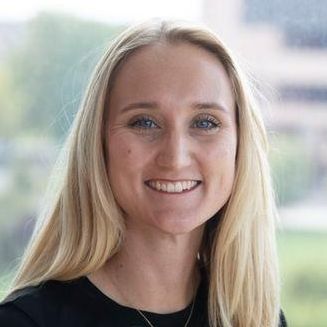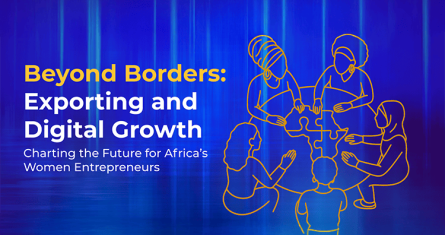ESCP and partners unveil research on the realities, resilience, and growth strategies of women founders in Sub-Saharan Africa
On 6 September, nearly eighty entrepreneurs, investors and ecosystem leaders gathered in Nairobi to reflect on the realities of women-led digital entrepreneurship in Africa. The event — hosted by ESCP Business School, UNCTAD’s eTrade for Women initiative and the Gordon Institute of Business Science (University of Pretoria) — built on a major research project surveying almost one hundred founders and conducting more than thirty in-depth interviews across thirteen Sub-Saharan African countries.
The study confirms a picture many already know: women are driving innovation and trade, but they are slowed by persistent barriers. Six in ten founders reported that family responsibilities limit their business growth. Almost ninety per cent rely on personal savings to finance their companies, with only a small fraction able to access external funding. Digital adoption is widespread but uneven, with high costs, patchy internet and shortages of skilled talent preventing firms from becoming fully digital. And while many women do export, they often do so reactively, through friends or diaspora networks, rather than as part of a planned strategy.
For Alisa Sydow, Associate Professor of Entrepreneurship at ESCP and one of the study’s lead authors, the Nairobi event was not about unveiling new statistics but about recognising the urgency behind them. “The most striking thing is not that the barriers are unknown,” she reflected. “The women live them every day. What they want now is recognition, legitimacy, and systems that match their resilience.”
 Prof. Alisa Sydow speaking at the event in Nairobi
Prof. Alisa Sydow speaking at the event in NairobiReframing resilience
The discussions in Nairobi also revealed patterns that numbers alone can obscure. Many women are already exporting, but often without a plan. Goods are sent abroad through informal or diaspora channels, sometimes to random markets. Alisa calls this “unplanned exporting”. “Many are trying to expand across borders, but without strategy and support it keeps them in low-growth loops — and in some cases it does more harm than good,” she said.
Turning exporting into a growth strategy requires more than determination. It means reliable market data, trusted digital payment systems, and smoother customs procedures. Without these foundations, ambition risks becoming a burden rather than a springboard.
The most striking thing is not that the barriers are unknown. The women live them every day. What they want now is recognition, legitimacy, and systems that match their resilience.
 Alisa Sydow
Alisa SydowAssociate Professor of Entrepreneurship at ESCP
Knowledge and community
Identity and visibility matter. Alisa argues that women need spaces where their entrepreneurial work is not hidden behind family roles but recognised as central to economic growth. Community is crucial to this process: the Nairobi event itself became a demonstration of how peer recognition builds confidence.
What began as a panel quickly turned into an open-floor exchange, with audience members driving the discussion. Hours later, groups of founders were still on the terrace sharing strategies and frustrations. For Alisa, that dynamic matters as much as the research. “Community is not only about visibility, it is also a training ground,” Alisa explained. “Through networks, women share experiences, learn from each other, and build the confidence to approach funders or negotiate with policymakers. It is where identity as an entrepreneur is practised.”
 A panel discussion featuring leaders across areas of policy and practice
A panel discussion featuring leaders across areas of policy and practiceFinance and freedom
Again and again, women in Nairobi returned to the subject of finance. But their call was not for large-scale venture capital. Most asked for modest, fairly priced loans — often around €20–30,000 — to manage cash flow or expand capacity. These sums are sufficient to seize orders, buy equipment, or stabilise operations, yet they remain frustratingly out of reach.
The reasons are structural and cultural. Local banks often prefer to lend to governments, while interest rates of 14 per cent or more make borrowing unsustainable. In some cases, women are still asked whether their husbands consent before they can access credit. “These stories are happening now, in 2025, not in the past,” Alisa underlined.
For her, the message is clear: finance must be designed for the realities of small and growing firms, not just for high-growth ventures. “Women are proven to repay. The system simply isn’t designed with them in mind,” she said. Looking ahead, Alisa hopes future gatherings will go further by putting women in direct dialogue with banks, investors and policymakers — through workshops and networking formats that create not only visibility, but also tangible opportunities to shift practice.
Policy support that makes a difference
Beyond finance, Alisa highlights the power of targeted policy reforms. One example is customs. She points to the absence of a low-value relief scheme in Europe for small parcels from Africa — a mechanism once available in the United States.
“It would cost Europe very little but would make a huge difference for small exporters of fashion and craft goods,” she argued. Such reforms would allow women to ship products with predictable costs, giving them a foothold in international markets.
These practical steps, combined with better digital infrastructure and fairer financial systems, would transform exporting from a risky, ad hoc practice into a deliberate path for growth
 Fostering moments of connection and community building
Fostering moments of connection and community building What’s next
The Nairobi event made one thing clear: the time for diagnosis is over. Women entrepreneurs need structures that would enable fairer systems, visible recognition, and opportunities to scale sustainably. “What these women need most is not charity,” Alisa reflected, “but fair systems — and the visibility to claim space as entrepreneurs.”
This research is only the beginning. Follow-up studies are planned, with the aim of deepening understanding and continuing to build visibility for women digital entrepreneurs. For Alisa, the task ahead is ensuring that the evidence gathered translates into practical support: in finance, in policy, and in the everyday systems that shape women’s entrepreneurial lives.
Campuses
